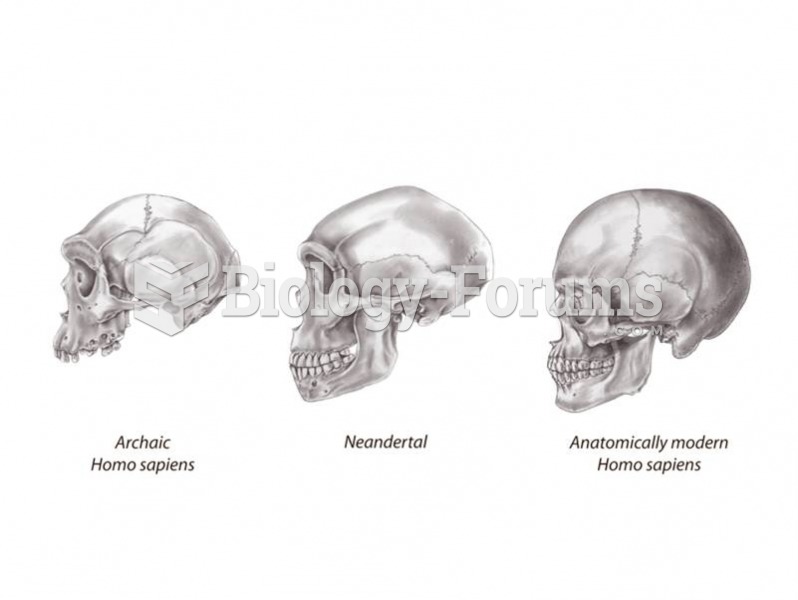|
|
|
Warfarin was developed as a consequence of the study of a strange bleeding disorder that suddenly occurred in cattle on the northern prairies of the United States in the early 1900s.
Studies show that systolic blood pressure can be significantly lowered by taking statins. In fact, the higher the patient's baseline blood pressure, the greater the effect of statins on his or her blood pressure.
All adverse reactions are commonly charted in red ink in the patient's record and usually are noted on the front of the chart. Failure to follow correct documentation procedures may result in malpractice lawsuits.
Pubic lice (crabs) are usually spread through sexual contact. You cannot catch them by using a public toilet.
This year, an estimated 1.4 million Americans will have a new or recurrent heart attack.
 A complete cranium of Au. Afarensis from Hadar, Ethiopia, shows a prognathic face and a small brainc
A complete cranium of Au. Afarensis from Hadar, Ethiopia, shows a prognathic face and a small brainc
 Variations on a theme: archaic Homo sapiens, Neandertal, and anatomically modern Homo sapiens skulls
Variations on a theme: archaic Homo sapiens, Neandertal, and anatomically modern Homo sapiens skulls





